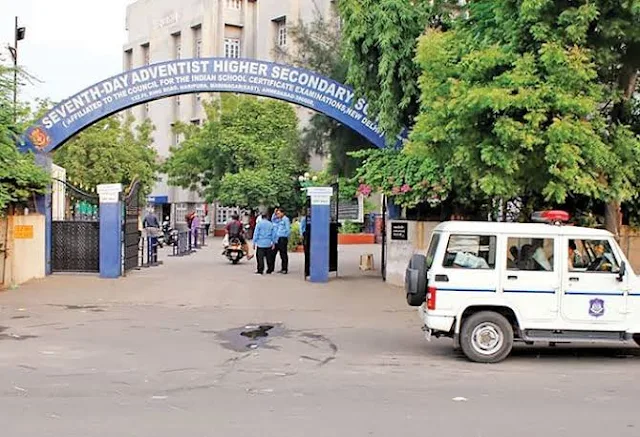The recent ghastly incident in Ahmedabad’s sprawling Maninagar (East) area, in which a 10th-class student of the Seventh Day Adventist School was stabbed to death by a boy from the 9th (or 8th?) standard, made me look up what kind of school it is. I found it to be part of the larger Adventist movement, which began in the United States in the 19th century within the Protestant Christian framework.
Maninagar, I have been told, was Prime Minister Narendra Modi’s initial political karmabhoomi during his formative years. While covering Sachivalaya for the Times of India (1997-2012), a senior bureaucrat told me that during the Emergency days (1975–77), Modi would hide in the house of an RSS pracharak to avoid arrest. This babu, who retired a few years ago and lived in Maninagar, told me he personally knew this RSS pracharak, “a simple soul, always ready to help.”
A known Hindutva bastion, Modi represented the Maninagar constituency in the state legislative assembly thrice — 2002, 2007, and 2012. Expectedly, following the stabbing incident, in which the accused happens to be a Muslim and the victim a Hindu, there was strong protest led by the saffron brigade over the alleged failure of the administration, led by a Christian principal, to keep outlaws in the school under control.
Following the ghastly incident, I happened to interact with the principal of another school. Fear was writ large on his face: what if such an incident happened in his school? Wouldn’t he be beaten up like the Seventh Day School principal was? What if a similar crowd entered his school premises? He had no clue how to control it, nor any idea how to deal with what he called “increasing incidents of violence among schoolchildren, which we are witnessing in front of our own eyes.”
Even as I was speaking with this principal, I came to know that the Ahmedabad district education office (DEO) had called a meeting of school principals where discussions were held on how to prevent incidents like the one in the Maninagar school. I asked this principal what had happened in the meeting. While I wasn’t apprised of the details, he told me he had taken “a few precautionary measures.”
And what were these? “We have started checking the school bags of all the children studying in secondary classes, and we confiscated whatever sharp objects were found,” the principal revealed, adding, “While scissors were found in many children’s bags and we took them all, telling them they were in our lock and key and would be returned when they had crafts period, three children had knives in their bags.”
The principal claimed — and this struck me like a bolt from the blue — “All three were Muslims. One of them carried a rather long knife, which the child told me was used for slaughtering goats. We called the child’s father, whose immediate reaction was that his son was being targeted because he was a Muslim. I told him, we don’t discriminate on religious lines; otherwise, we wouldn’t be admitting Muslims in our school.”
The principal, who headed a private school, further claimed that he had “observed” violent incidents happening “mostly among students admitted under the 25 percent quota for socially and economically backward children under the Right to Education Act. They study for free, for which the government compensates us. We cannot fail them till they reach the eighth standard. They have to be compulsorily promoted. They can’t be rusticated either. So, they become careless. In my school, 50 percent of these children are Muslim.”
A teacher with whom I later interacted told me that in his school — one of the better ones providing “quality” education — following the school authorities’ directions, “we search the children’s bags of one classroom every day. It’s such a headache. Many children — especially those admitted under RTE — are found to keep some sharp object in their bags. Some remove the screw from the pencil sharpener and keep the blades in their bags. Do we teach children or do this security check?”
I mentioned all this to someone close to me. This person, who did not want to be named, said that while he couldn’t comment on the Seventh Day School incident per se, in the late 1990s and 2000s, when he studied at a top Ahmedabad school, he personally witnessed how Muslim children were targeted. “One of the very decent boys, a brilliant one, would be called ‘Oy Miya,’ used as an insult; he was rarely addressed by name. He wouldn’t react, but surely this is the type of atmosphere that prevails in many schools. One must understand the psychology of such children.”
I was reminded of what a well-known cultural personality told me when we met around the time I joined the Times of India in 1993 as part of my acquaintance drive. He told me about a top school, preferred by Gujarati parents for their children. Telling me his daughter studied there, he said, “A day ahead of the 15th August function, the teacher told the children they must compulsorily attend flag hoisting, underlining, ‘those who don’t attend are Miyabhai.’ My daughter asked what is this Miyabhai… I was at a loss to tell her the teacher was spreading communal hatred through such a statement.”
Courtesy: CounterView

